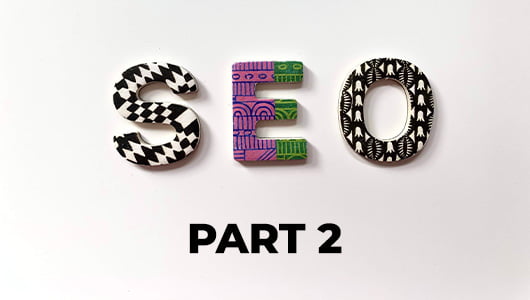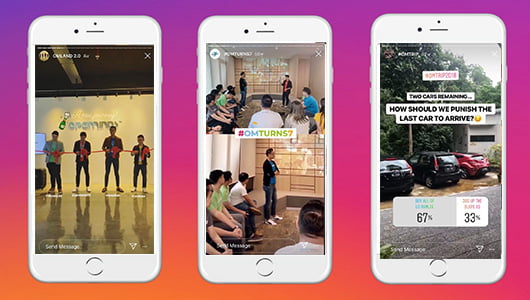One of the biggest difference in modern day SEO as compared to what it was before is how intelligent search engines have become. What was deemed as ‘SEO friendly’ back then was heavily influenced by content relevance, such as optimising keywords and meta data as described here on content relevance.
It is important to note that search engines are always finding ways to further optimise its results to searchers so you should have a balanced approach instead of focusing on beating the search algorithms. Today, search engines are known to be able to read contextual information beyond the content provided as a gauge of your brand’s credibility through your website.
Part 2: Context Relevance in modern day SEO
Localisation
It is important to know that modern search engines now display results based on the searcher’s location. This means you need to take advantage of that (you can do so on local.google.com for Google Search) and help search engines to recognise where are you based at, especially if your target audience is local.
Key takeaway: In most situations, being well positioned on local search results also yields pretty good ranking on international results; which is a plus to your brand.
Post-click Activity
It is for the longest time brands like you have been trying to lower the bounce rate on your website, and here’s another reason for you to do so – especially if you haven’t been doing anything about it. Search engines now track if searchers are bouncing off your website and returning to the search results. If that happens, Google will learn that your website probably did not address the search term provided and you drop in relevance.
Key takeaway: Make sure your keywords matches what you have to offer, and offer it good! Always aim to satisfy the readers when they discover your content and you will do fine.
Shareability
Social is not a new comer to search engines. In fact, Google Plus was created to help bridge search and social though it didn’t really pick up over the years. However, having your content shared (and linked) back to you on social media platforms do give you added points on SEO as it builds added credibility to your website.
Key takeaway: Make it easy for readers to share your content. Also, be sure to have your images and content excerpts ready so it shows up nice and pretty on social media channels to encourage more shares.
External Links
Also widely known as back links, i.e. websites that are linking back to yours. Imagine it as testimonials or recommendations other websites are giving you. The more credible links you receive, search engines will perceive your website as one that is equally credible and therefore deserves attention on search results.
Key takeaway: Not all links coming in are good – especially if they are from spammy sources. Your goal is to create meaningful links back to your website from reputable websites.
Internal Links
Having a similar concept as external or back links, internal links are links between the web pages within your website. Being able to deep link your content, shows search engines that your website remains within context and that you have some authority within the keyword’s domain.
Key takeaway: Over the years, both external and internal links have declined in significance to SEO. However, it is still good practice to have them in place as it is also beneficial to your readers in navigating around related content.




